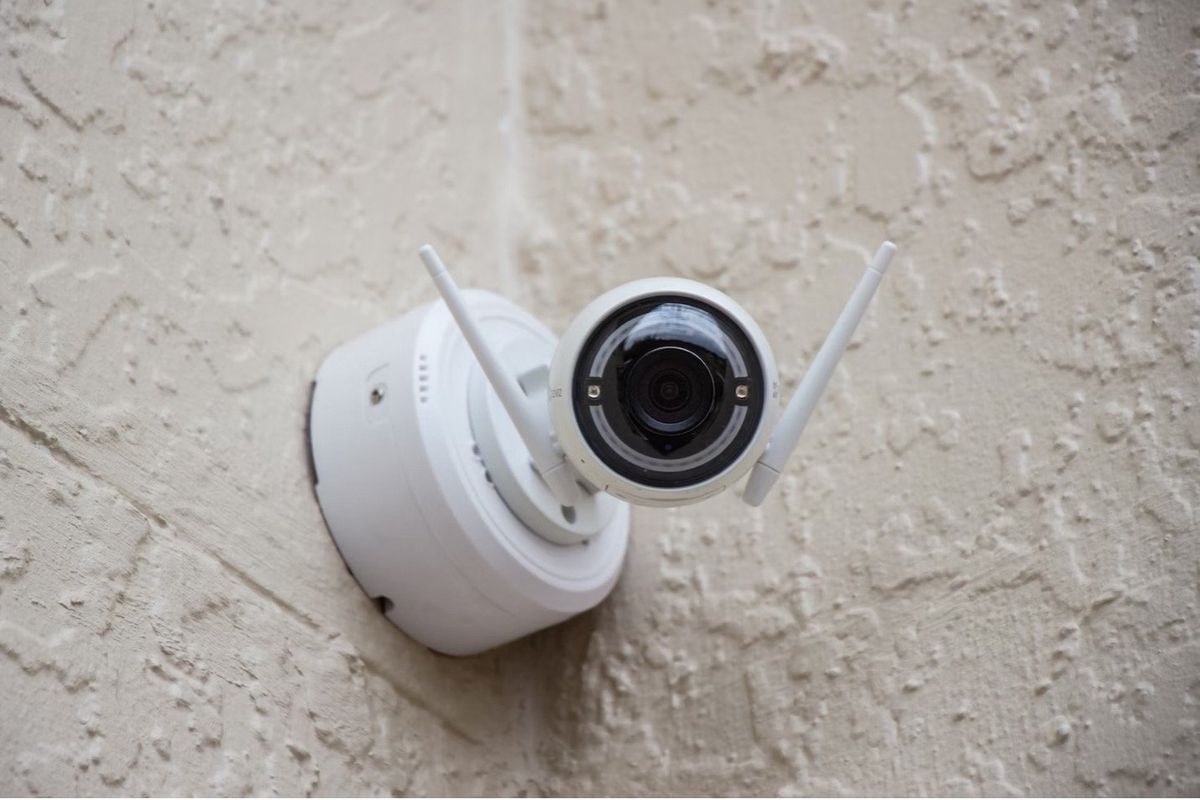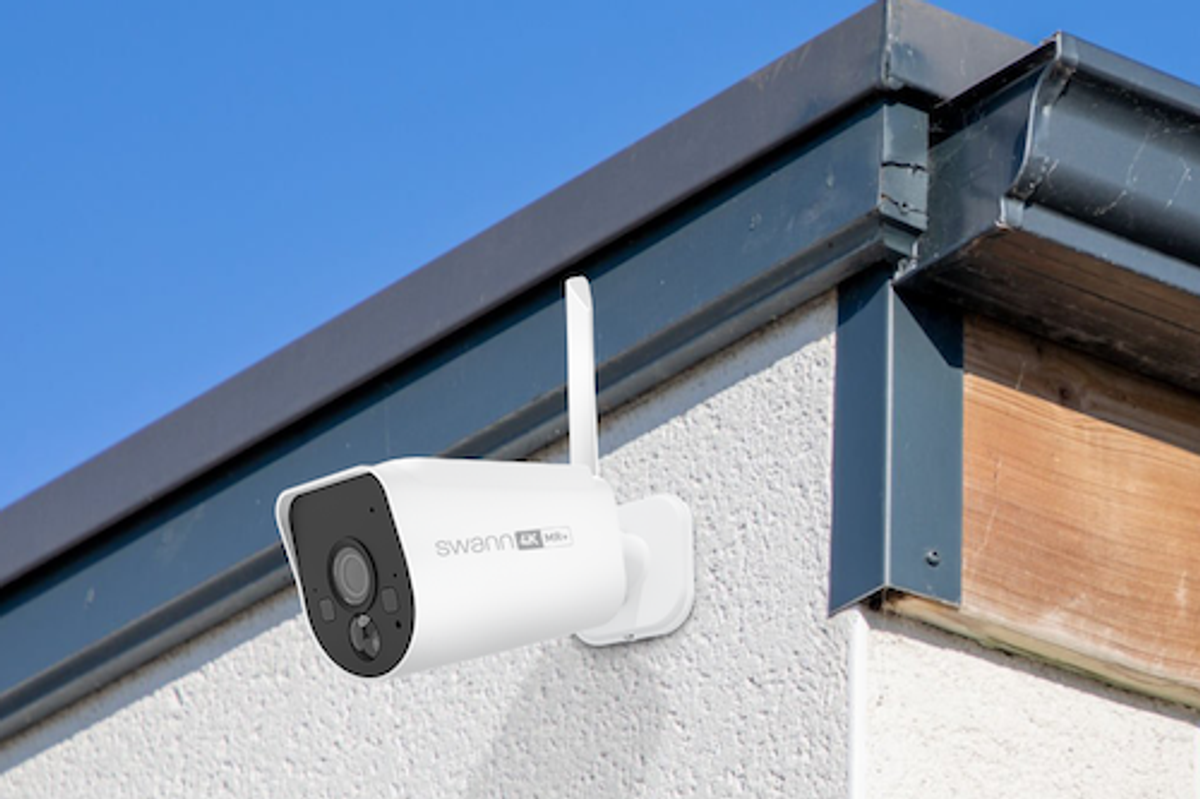
Alan J. Hendry
Choosing the Best AI Security Camera for Your Smart Home
Discover the top AI camera features—from facial recognition to smart alerts—and learn how to pick the best AI-powered security camera for your smart home system.

Discover the top AI camera features—from facial recognition to smart alerts—and learn how to pick the best AI-powered security camera for your smart home system.
As technology advances, AI security cameras are transforming how homeowners approach security. Smart home technology has revolutionized how we interact with our homes, and AI-powered surveillance systems are at the forefront of this evolution. With the ability to recognize faces, detect motion, and send real-time alerts, AI security cameras are making home security smarter, more efficient, and easier to manage.
If you want to upgrade your home’s security, choosing the right AI security camera is essential. But with so many options available, it can be overwhelming to determine which camera is best suited for your needs. In this comprehensive guide, we will walk you through the key features to look for when selecting an AI security camera for your smart home, including facial recognition, real-time alerts, cloud storage, and integration with other smart devices.

Before we dive into how to select the best AI security camera, it’s important to understand what sets these cameras apart from traditional security cameras.
An AI security camera uses artificial intelligence to enhance surveillance functionality. Unlike conventional cameras that simply record footage, AI cameras analyze the video in real-time to detect specific objects, faces, and behaviors. These systems can automatically identify people, vehicles, and pets, distinguish between normal and suspicious activity, and send targeted alerts to the user.
Here are some key features that make AI cameras smarter than traditional cameras:
Now that we understand what makes AI cameras unique, let’s explore the key features to consider when selecting the best AI security camera for your smart home.

One of the standout features of AI security cameras is their ability to recognize faces. This technology uses advanced algorithms to compare captured images with a database of known faces, alerting you when a recognized person is detected. This is particularly useful if you want to keep track of family members, guests, or even delivery people entering your home.
When choosing an AI security camera with facial recognition, ensure that the system supports cloud-based or local storage for the images and that it has a reliable database update feature. The camera should also be able to work in varying light conditions, from daylight to nighttime, to accurately capture faces.
Real-time alerts are a critical feature of any AI security camera. When the camera detects unusual activity—such as someone entering your property, tampering with your door, or approaching a restricted area—it sends an immediate alert to your smartphone or connected device. These notifications allow you to take action quickly, whether it’s contacting the authorities or checking the live video feed to assess the situation.
Look for AI cameras that offer customizable alert settings, allowing you to adjust the sensitivity and types of events that trigger notifications. Additionally, ensure that the camera app allows for easy access to live video footage, so you can check the situation right away.
AI cameras often come with two primary storage options: cloud storage and local storage. Each has its advantages and considerations, so it's important to understand the differences before making a decision.
When selecting an AI security camera, check the storage capacity and whether the camera offers both options or just one. If you have limited internet bandwidth, local storage may be a better fit, whereas cloud storage is ideal for those who need off-site backups and easy remote access.
The ability to integrate your AI security camera with other smart home devices is one of the major advantages of smart home systems. Look for cameras that are compatible with smart assistants like Amazon Alexa, Google Assistant, or Apple HomeKit. Integration allows you to control the camera with voice commands, receive alerts on your smart devices, or even link your security camera to other devices like smart locks, smart lights, and home alarms.
Ensure that the AI security camera you choose works seamlessly with other devices you already have in your home. Look for cameras that offer compatibility with multiple platforms and have robust app support.
Since home security cameras need to work in all lighting conditions, night vision is an essential feature. Look for AI cameras with infrared night vision to ensure clear, high-quality footage, even in complete darkness.
Additionally, if you're placing cameras outdoors, consider the camera’s weather resistance. Look for cameras with an IP (Ingress Protection) rating of at least IP65 to ensure the camera can withstand rain, dust, and extreme temperatures.

Now that we've covered the key features to look for, here’s a step-by-step approach to choosing the best AI security camera for your smart home setup:
1. What is an AI security camera?
An AI security camera is a type of surveillance camera that uses artificial intelligence to analyze video feeds in real time. Unlike traditional cameras, AI cameras can detect specific objects, faces, and behaviors, allowing them to send real-time alerts for events like unauthorized access, suspicious movement, or the recognition of known individuals.
2. What are the key features to look for in an AI security camera?
When choosing an AI security camera, key features to consider include:
3. How does facial recognition work in AI security cameras?
Facial recognition in AI security cameras works by capturing images of individuals and comparing them to a database of known faces. When a camera detects a match, it sends a real-time alert to the user. This feature is useful for tracking family members, visitors, or even delivery personnel entering your home.
AI security cameras are an invaluable addition to any smart home, offering enhanced security with features like facial recognition, motion detection, and real-time alerts. By considering factors such as storage options, integration with other smart devices, and night vision, you can select the best AI security camera that fits your specific needs. With the right AI camera system, your home will be more secure, responsive, and smarter than ever before.
GearBrain Compatibility Find Engine
A pioneering recommendation platform where you can research,
discover, buy, and learn how to connect and optimize smart devices.
Join our community! Ask and answer questions about smart devices and save yours in My Gear.
